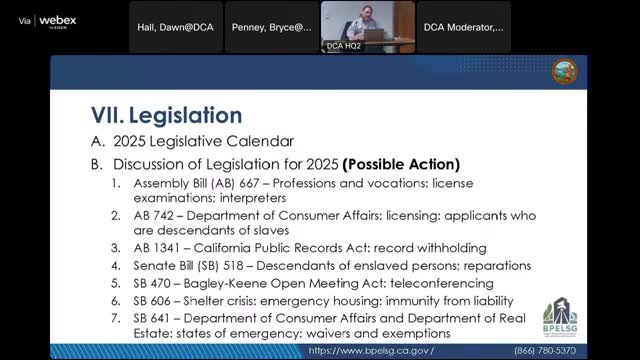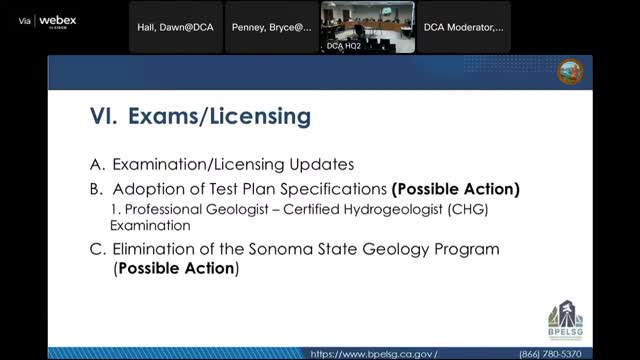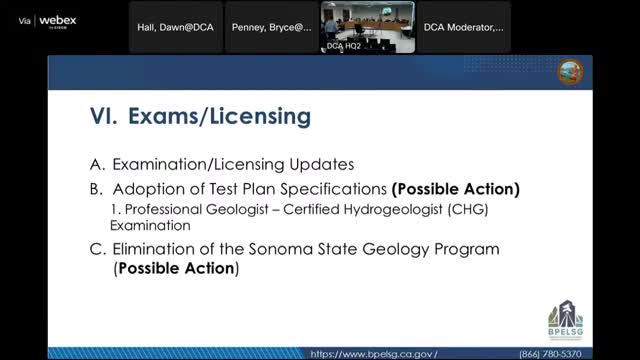Article not found
This article is no longer available. But don't worry—we've gathered other articles that discuss the same topic.

Board takes positions on several bills, opposes interpreter mandate for exams and supports teleconference rules

Board adopts certified hydrogeologist exam specs; public raises concerns about computer-based testing for complex engineering exams

